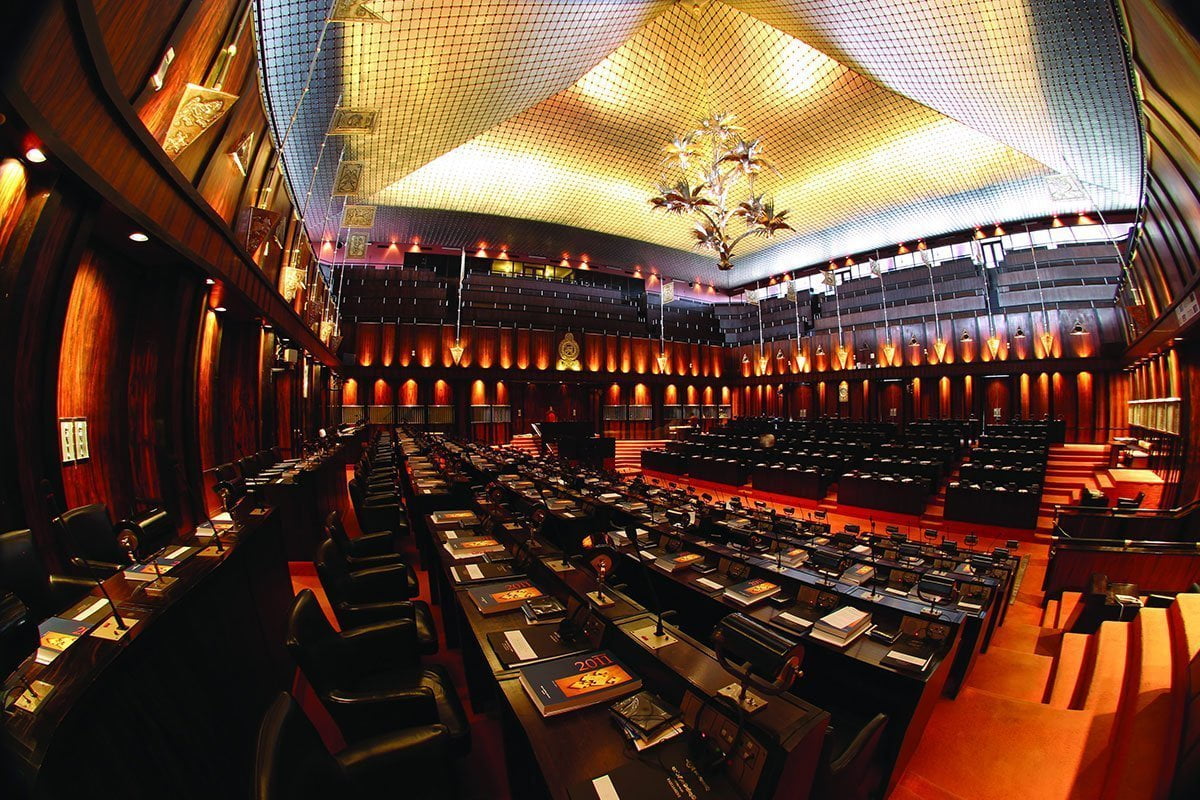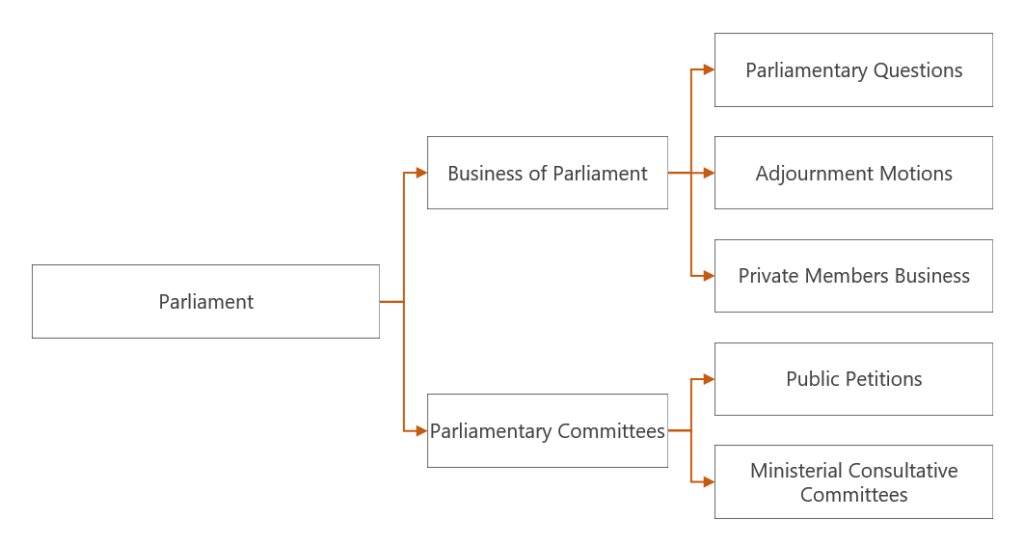
10 Aug Parliament Series: How can we keep the next Parliament accountable? An Overview
Let’s make sure MPs do their job!
With the conclusion of the Parliamentary Election, the new Parliament will be convened on 20th August with new hopes and possibilities for the next five years. You have voted and selected the Members you think are best to represent your interests in the national law and policy spheres. Does that mean our job as citizens is over now? Of course not. It is our absolute duty to hold our representatives accountable and make sure that they do the job. How can we do this?
We at Policy.Lk decided to look into the procedures and mechanisms of the Parliament to get an insight into how the Members of Parliament (MPs) discharge their duties. This series of articles will focus on how you can get your MPs on board to make your voice heard in the Parliament through these mechanisms.
The Article 4 (2) of the Constitution of Sri Lanka mandates that the legislative power of the People shall be exercised by Parliament, consisting of elected representatives of the People and by the People. That means Parliament is the branch of the government that can make new laws and change existing laws that govern you and me. However, its duty is not confined to making laws.
So, what are the platforms available for MPs within Parliamentary mechanism to discuss public matters and issues? How can they utilize them to make sure that our representation matters? It is our duty, as citizens, to understand this as much as it is their duty to ensure the effective discharge of their roles as the representatives of people. It is only with such understanding can we demand our expectation of what Parliament ought to be and what its members ought to do.
Let’s look at an overview of the platforms available for MPs to discuss public matters and issues. We will be discussing on these mechanism in depth in the coming articles.
An Overview of the platforms available for the MPs to represent you
The work of the Parliament involves the House proceedings (Business of Parliament) which you often get to witness and Parliamentary Committees which function outside the chamber and therefore you might not be familiar with. There are different platforms within both these mechanism to bring your voice, concerns and interests into the attention of the Parliament and the responsible authorities. We have selected five such platforms where MPs can voice their representation.

Business of Parliament
1.1. Parliamentary Questions
Parliamentary Questions are one of the most significant and prominent mechanisms included as a part of the Business of Parliament where MPs can put forward oral and written questions to the Prime Minister or to any Minister with regard to the public affairs. It is commonly regarded as an effective mechanism to hold the government accountable for its work, policy decisions and actions. The Parliamentary Questions can be categorized into two.
- Questions for Oral Answers – The questions for which the Minister is obliged to orally answer in the Parliament
- Questions NOT for Oral Answers- Further questions that are put forward for written answers
Additionally, there are two other special categories of questions.
- Questions under Standing Order 27 (2) – These questions are specifically provided for the matters of urgent public importance. This opportunity is given to the Party Leaders.
- Prime Ministers Question – Backbench MPs (MPs who do not have a ministerial responsibility) can question the Prime Minister directly on government policies.
1.2. Motions or questions at the Time of Adjournment
At the conclusion of the main business of the Parliament, it will be adjourned till the next sitting day of the Parliament. The Adjournment Motions allow the MPs to debate on matters of urgent public importance for another one hour after the adjournment.
1.3. Motions or questions at the Time of Adjournment
A private Member is a MP who does not hold any of the Offices such as Speaker, Deputy Speaker, Deputy Chairman of Committees, Leader of the. House of Parliament, Leader of Opposition in Parliament, Chief Government Whip and the Chief Opposition Whip or any of the Ministerial Portfolios. There are two platforms available for them to effectively engage in law making process and represent their electorates.
- Private Members Bills – This is a great platform for a member to directly involve in the law making process on a matter of public interest. Here, any member can present a Bill to the Parliament on an area which he thinks that legal reforms are necessary. There have been many examples of effective utilization of this opportunity by the MPs.
- Private Members Motions – This is another window of opportunity for MPs to present matters of public importance to Parliament. These Motions usually involves issues of public interest which could be presented with the purpose of compelling responsible authorities for necessary action. They could even lead to effective policy changes and enforcement of necessary laws.
Parliamentary Committees
Most of the Parliament’s work is done through these sub legislative platforms called Parliamentary Committees. Within the well-knit committee system in Sri Lanka Parliament, there are two Committees mainly focused on direct engagement with the public affairs.
Committee on Public Petitions
Any person who has suffered any injustice by a Government Institution or a Government Official can report to the Parliament to seek redress through a Public Petition. These Petitions are heard and facilitated by the Committee on Public Petition. Here the MPs act as mediators between the aggrieved party and the perpetrator, which is the government.
Ministerial Consultative Committees
How many times have you tried to meet a Minister on their Public Day to convey a matter concerning you or your community and failed? Well, the Ministerial Consultative Committees in Parliament enable your MPs to refer your matters directly to relevant Cabinet Minister. The Committee is a platform for the MPs to refer any matter within the scope of a certain Ministry to the notice of the respective Cabinet Minister for necessary and immediate action.
Follow the upcoming articles by Policy.lk for an in-depth commentary on these mechanisms and how effective their outcome could be in representing public and national interests.

No Comments